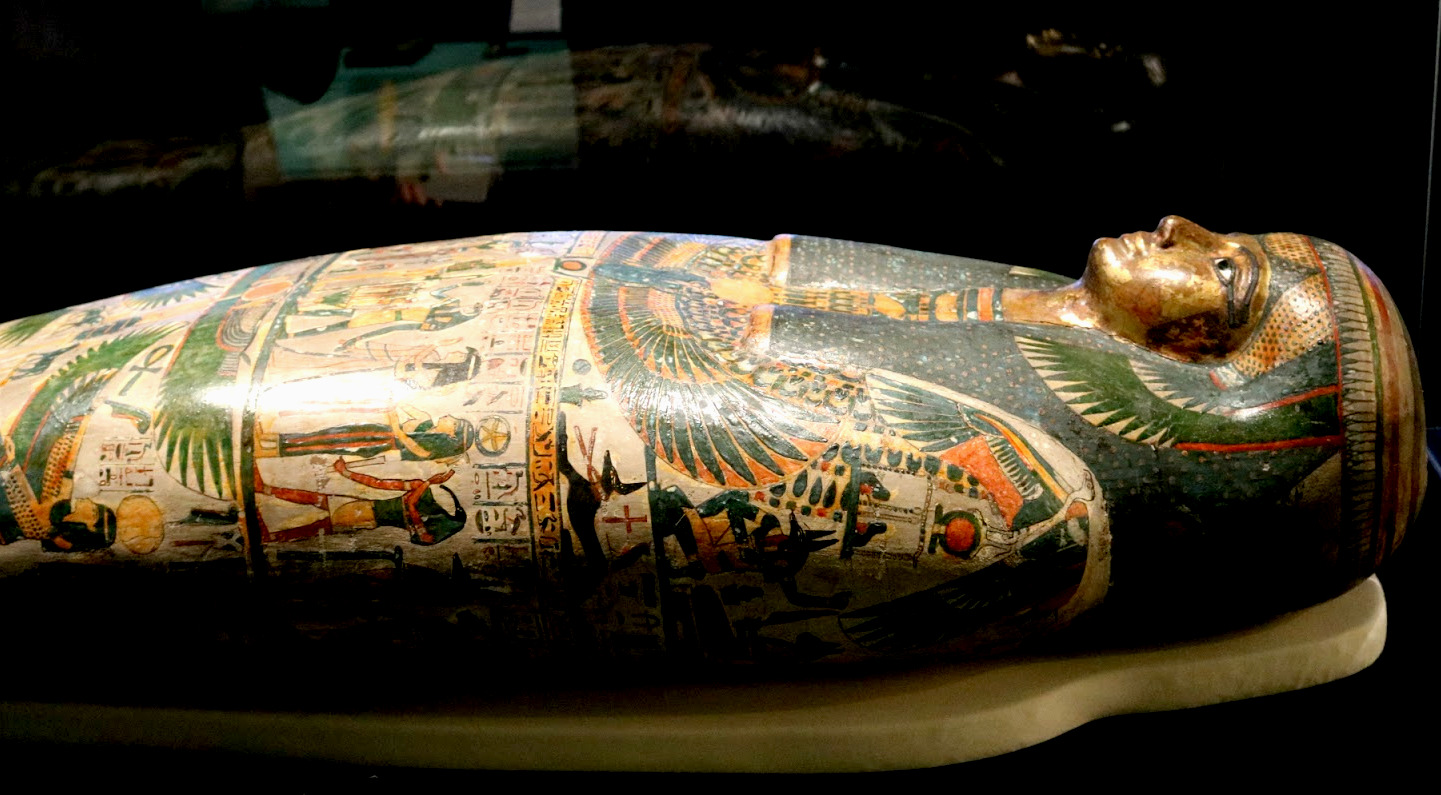|
Ptolemy
XII Auletes was a member of the Ptolemaic
dynasty that ruled Egypt after
Alexander the
Great.
He fathered Cleopatra
VII, but it is historically unclear
who her mother was, though thought to be Cleopatra V
Tryphaena.
Ptolemy married his sister Cleopatra V, who was with certainty the mother of his eldest known child, Berenice IV. Cleopatra V disappears from court records a few months after the birth of Ptolemy XII's second known child, and probably hers, Cleopatra VII in 69 BC. The identity of the mother of the last three of Ptolemy XII's children, in birth order Arsinoe IV, Ptolemy XIII, and Ptolemy XIV, is also uncertain. One hypothesis contends that possibly they (and perhaps Cleopatra VII) were Ptolemy XII's children with a theoretical half Macedonian Greek, half Egyptian woman belonging to a priestly family from
Memphis in northern Egypt, but this is only speculation.
The philosopher Porphyry (c. 234 – c. 305 AD) wrote of Ptolemy XII's daughter Cleopatra VI, who reigned alongside her sister Berenice IV. The Greek historian Strabo (c. 63 BC – c. AD 24) stated that the king had only three daughters of whom the eldest has been referred to as Berenice
IV. This suggests that the Cleopatra Tryphaena mentioned by Porphyry may not have been Ptolemy XII's daughter, but his wife. Many experts now identify Cleopatra VI with Cleopatra V.

Ptolemy XII Neos Dionysus Philopator Philadelphus (Greek: Πτολεμαῖος Νέος Διόνυσος Φιλοπάτωρ Φιλάδελφος)
C. 117 – 51 BC was a pharaoh of the Ptolemaic Kingdom of Egypt who ruled from 80 to 58 BC and then again from 55 BC until his death in 51 BC. He was commonly known as Auletes (Αὐλητής, "the Flautist"), referring to his love of playing the flute in Dionysian festivals. A member of the Ptolemaic dynasty, he was a descendant of its founder
Ptolemy I Soter, a Macedonian Greek general and companion of Alexander the Great.
Ptolemy XII was an illegitimate son of Ptolemy IX by an uncertain mother. In 116 BC, Ptolemy IX became co-regent with his mother, Cleopatra III. However, he was forced into a civil war against his mother and his brother, Ptolemy X, leading to his exile in 107 BC. Cleopatra III sent her grandsons to Kos in 103 BC. They were captured by Mithridates VI of Pontus probably in 88 BC, around the time Ptolemy IX returned to the
Egyptian throne. After their father died in 81 BC, Ptolemy XII's half-sister Berenice III took the throne. She was soon murdered by her cousin and co-regent, Ptolemy XI, who was then killed. At this point, Ptolemy XII was recalled from Pontus and proclaimed pharaoh, while his brother, also named Ptolemy, was installed as king of Cyprus.
Ptolemy XII married his relative Cleopatra
V, who was likely one of his sisters or cousins; they had at least one child together,
Berenice
IV, and Cleopatra V was likely also the mother of his second daughter,
Cleopatra
VII. The king's three youngest children – Arsinoe
IV, Ptolemy
XIII, and Ptolemy XIV – were born to an unknown mother. Ptolemy XII's uncle Ptolemy X had left Egypt to Rome in the event there were no surviving heirs, making Roman annexation of Egypt a possibility. In an effort to prevent this, Ptolemy XII established an alliance with Rome late into his first reign. Rome annexed Cyprus in 58 BC, causing Ptolemy of Cyprus to commit suicide.
Shortly afterwards, Ptolemy XII was deposed by the Egyptian people and fled to Rome, and his eldest daughter, Berenice IV, took the throne. With Roman funding and military assistance, Ptolemy XII recaptured Egypt and had Berenice IV killed in 55 BC. He named his daughter Cleopatra VII as his co-regent in 52 BC. He died the next year and was succeeded by Cleopatra VII and her brother Ptolemy XIII as joint rulers.
|
